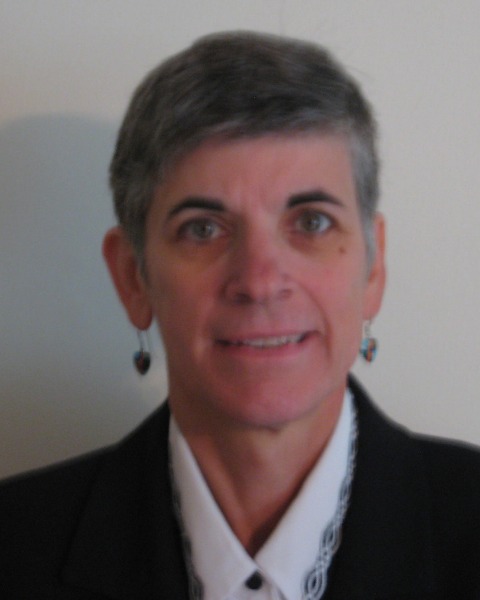Evaluation of an Interactive, Screen-Based Simulator for Pediatric Extracorporeal Life Support
-

Dennis Daniel, MD
Boston Children's Hospital
Milton, MassachusettsDisclosure information not submitted.
-
JZ
Jill Zalieckas, MD, MPH
Associate in Critical Care Medicine; Assistant in Surgery
Boston Children's Hospital, United StatesDisclosure information not submitted.
-
SV
Sally Vitali, MD
Senior Associate in Critical Care Medicine
Boston Children's Hospital, United StatesDisclosure information not submitted.
-
SB
Steven Brediger, RRT-NPS
Mechanical Circulatory Support Coordinator
Boston Children's Hospital, United StatesDisclosure information not submitted.
-
SL
Sonja Lehmann, BS
Research Associate
OPENPediatrics, United StatesDisclosure information not submitted.
-
MM
Mary-Jeanne Manning, MSN, RN, BC-PNP, CCRN
Clinical Nurse Specialist, Medical-Surgical Intensive Care Unit
Boston Children's Hospital, United StatesDisclosure information not submitted.
-
.jpg)
Peta Alexander, MBBS, FRACP
Staff Physician
Boston Children's Hospital
Boston, MassachusettsDisclosure information not submitted.
-

Heidi Dalton, MD, FELSO
Director, ECLS Research and Program Development
Inova Fairfax Hospital
Scottsdale, ArizonaDisclosure information not submitted.
-
LL
Liza Li, BCPS, PharmD, BCPPS
Staff Pharmacist
Boston Children's Hospital, United StatesDisclosure information not submitted.
-
JP
John Priest, BSRT, RRT-NPS
ECMO Specialist II
Boston Children's Hospital, United StatesDisclosure information not submitted.
-
TW
Traci Wolbrink, MD, MPH
Senior Associate in Critical Care Medicine
Boston Children's Hospital, United StatesDisclosure information not submitted.
First Author(s)
Co-Author(s)
Title: Evaluation of an Interactive, Screen-based Simulator for Pediatric Extracorporeal Life Support
Introduction: Limited options exist for online clinician education in pediatric extracorporeal life support (ECLS). Such tools are necessary to increase readiness of the pediatric critical care workforce to deliver safe, efficient and effective ECLS care. We developed an interactive, screen-based ECLS simulator teaching the basic principles of pediatric ECLS physiology, circuit configuration, and troubleshooting, and are evaluating this simulator's ability to impact self-efficacy and ECLS fund of knowledge among subspecialty physician trainees.
Methods: Single-arm prospective pilot study among first-year pediatric subspecialty fellows in anesthesiology, critical care medicine, cardiology, emergency medicine, neonatology, and pediatric surgery. Before and after completing the learning intervention (ECLS simulator), participants were asked to complete an anonymous survey of their self-efficacy in caring for pediatric ECLS patients, and a 33-item multiple-choice question (MCQ) test of ECLS knowledge. Survey domains were: Candidacy, Initiation, Physiology, Management, Troubleshooting, and Weaning. MCQ domains were: Indications and Candidacy, Circuit Walkthrough, Physiology, Access, Initiation, Maintenance, Patient Monitoring and Management, Mechanical Complications, and Patient Complications.
Results: Five participants were included in this initial analysis, all from pediatric critical care medicine. Self-efficacy increased, with pre-intervention mean Likert score 2.8 (range 2.7-3.2 across domains), and post-intervention mean 3.75 (range 3.1-4.0). The greatest increases were observed in the "Troubleshooting" (pre-intervention 2.7, post-intervention 4.0) and "Management" (2.5 versus 3.8) domains. MCQ score also increased, with pre-intervention mean percent correct 73% (range 40-100% across domains), compared to post-intervention mean score of 90% (range 73-100%). The greatest increases were observed in the "Initiation" (50% pre-intervention versus 100% post-intervention) and "Patient Monitoring and Management" (40% versus 73%) domains.
Conclusions: In this initial analysis, the ECLS screen-based simulator increased both self-efficacy and demonstrated fund of ECLS knowledge, suggesting utility for training pediatric clinicians in the fundamentals of ECLS. Recruitment for this pilot study is ongoing.
